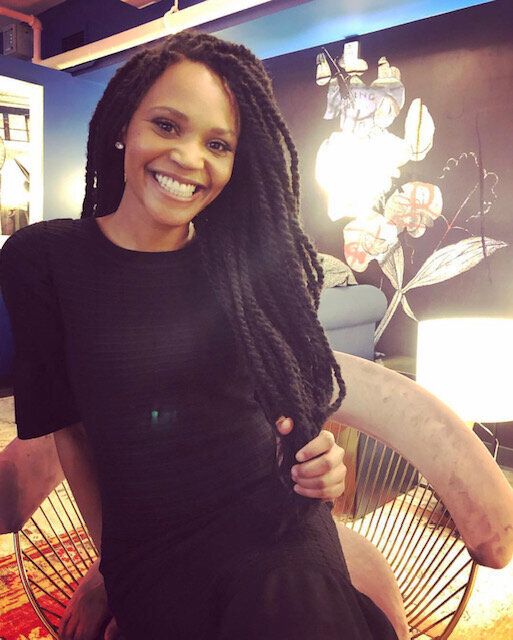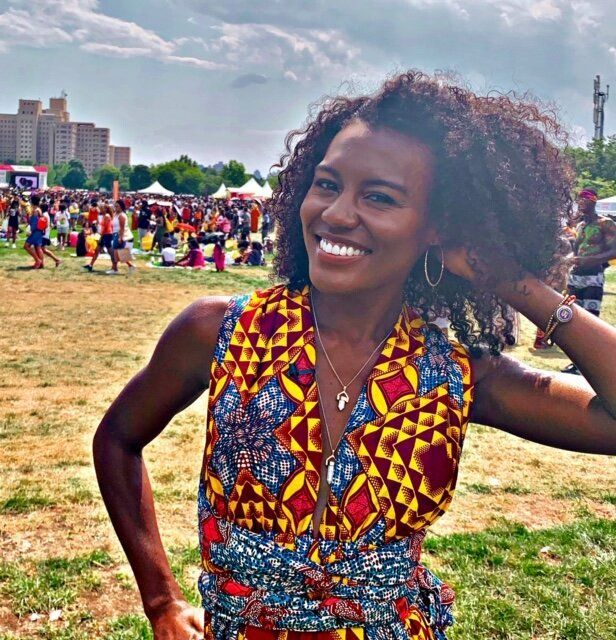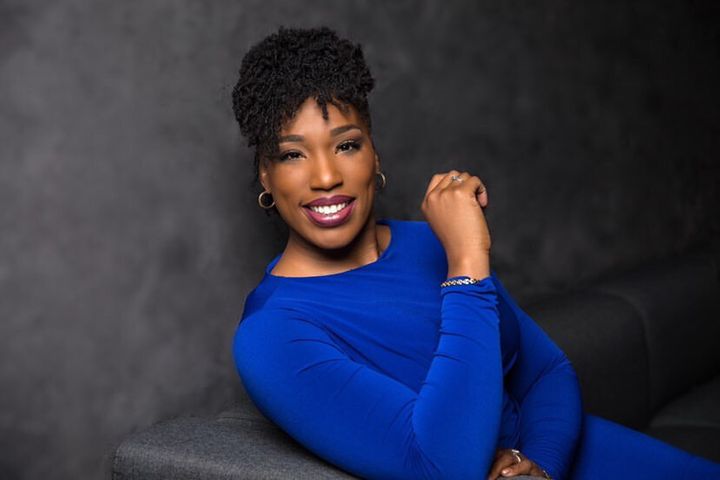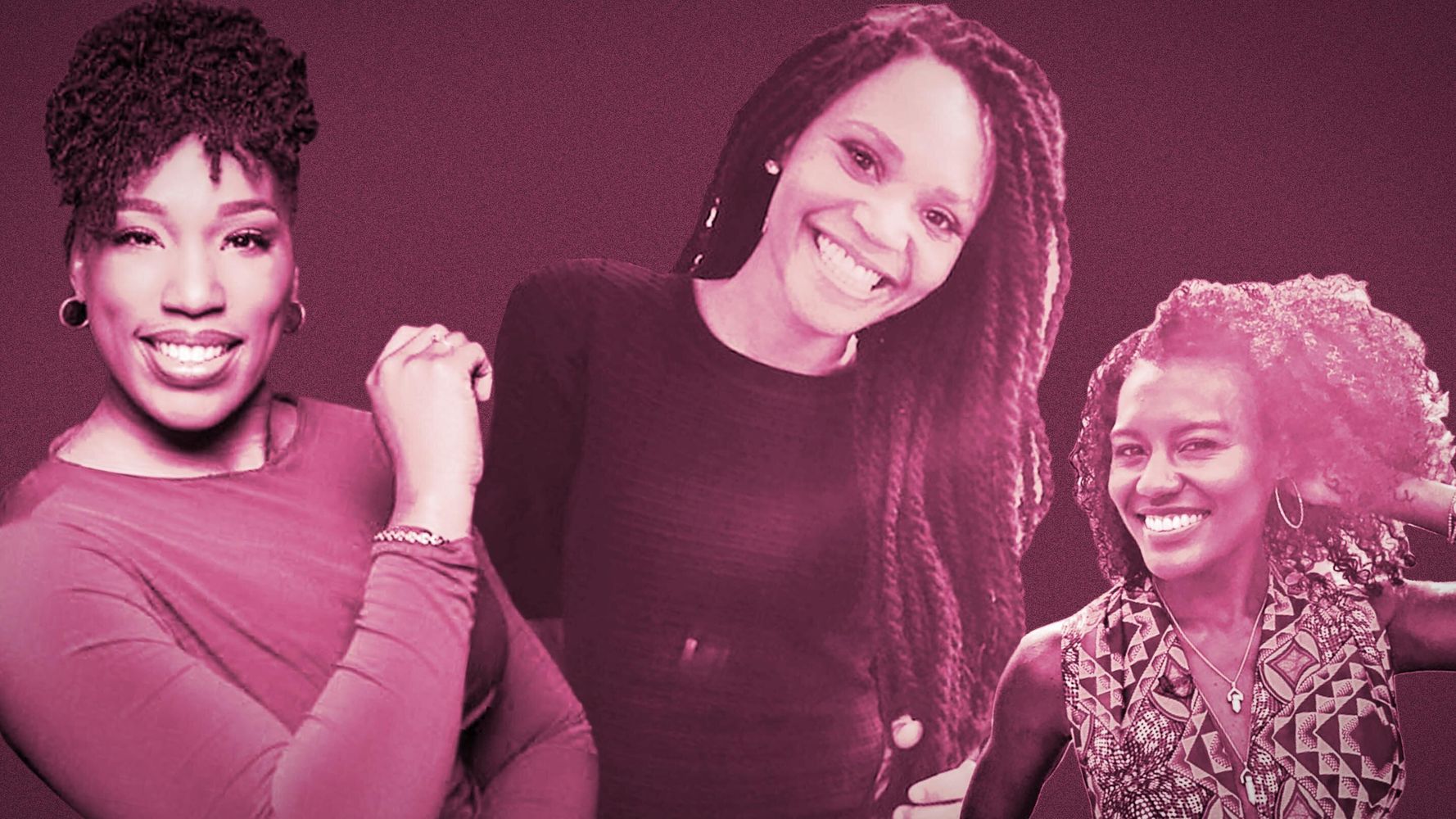[ad_1]
Before the 2010s, you’d be hard-pressed to find a Black news anchor wearing her natural hair on-air. To forgo the relaxer, or the quintessential “anchor bob,” could jeopardize a reporter’s likability, and even her job. This is what happened to Brittany Noble, a reporter who was fired from her local news station in 2018. She had been wearing her hair straight, and in wigs and weaves, when she started the job in 2015. But in 2017, she decided to go natural; after a month, Noble was told by her news director to change her hair back because it looked “unprofessional.”
“My goal was to just try to get on their good side so I could share stories that I felt were going unnoticed in the newsroom — many of these stories having to do with race,” she told HuffPost. “I figured if they are not willing to accept my natural textured hair, no wonder so many of our stories are going untold.”

A few unresolved corporate complaints and outrageous insults about her hair prompted Noble to speak out, but to no avail. She continued to get harassed by management and was told that the company policy prohibits on-air talent from having “shaggy, unkempt” hair.
“This is the natural way that my hair grows, and I go through great lengths to get my hair straight [in order to] meet the standards that everybody else is forced to be under,” she continued.
Noble’s dilemma exemplifies the struggle that many Black women in the workforce have experienced for decades.
On television and in movies, Black women’s beauty is often measured by the looseness of our curl patterns. It has become cultural and economic praxis to invest in the upkeep of European beauty standards, to maintain straight, long, flowing tresses. By the sting of a hot comb or the burn of a chemical relaxer, Black women are expected to adhere to this precedent to be successful.
And the media is not helping. Employers often ascribe success and professionalism to wearing straight hair, and broadcast television networks often attempt to validate their reasoning with the notion that Black hair in its natural state does not read well with viewers. As a result, natural curls rarely get airtime. However, more Black female journalists are beginning to fight back.
Janai Norman, an ABC News correspondent, beautifully summarized the weight of this fight in a 2019 interview with “Good Morning America”: “To free my curls, I first had to free my mind.”
In just a few words, the “World News Now” co-anchor identifies a struggle that Black people across all industries deal with daily: a struggle with self-efficacy in the workplace. So often, Black women are told that their concerns are not worth going to bat for, out of fear of losing a job or getting blacklisted. However, women like Norman believe it’s time to start speaking up.
“Wearing natural hair requires support in some way,” Norman said. “If [management] is able to provide everyone else with hairstylists, I need a hairstylist for me too. That’s part of being more accepting in the workplace and realizing that — especially at this point — this isn’t even the ‘alternative.’ I mean, there’s a whole movement that’s been around for years at this point.”

Norman traded her pressed-out curls for natural hair when she was pregnant in 2017, and has continued to spread positive messages about Black hair ever since. Her hashtag #FreeTheCurls has inspired Black women of all ages to embrace their natural hair and confide in a community of online supporters reminding them that their hair is, indeed, beautiful.
“I think it’s important to realize that as a woman — as a person — I can wear my hair however I please to any day of the week, and no one should have anything to say about it — other than, ‘I love your hair!’” she said.
The cases of Black hair getting prodded and detained throughout history are countless: There was Faith Fennidy, a Louisiana schoolgirl who was sent home for wearing braids; there was Zendaya, who was chastised by Giuliana Rancic for wearing dreadlocks at the 2015 Oscars, with Rancic saying the faux locs make her look like she smells like patchouli oil and weed. Who could forget the most recent report of Gabrielle Union getting told that her hair was “too Black” by “America’s Got Talent” producers? These and many other examples show just how easy it is for Blackness to get chastised in our society.
True, the advent of social media and several natural hair movements has brought progress for Black women around the world. The Oscar-winning short “Hair Love” by Matthew A. Cherry is just one of the many examples of contemporary calls to action. Several states have introduced bans against natural hair discrimination in order to decrease stigma and protect Black citizens. California was the first, with the induction of the CROWN Act, which prevents employers and schools from banning natural hair. It was signed into law by Gov. Gavin Newsom on July 3, 2019, and went into effect on Jan. 1. Since then, both New York and New Jersey have introduced the CROWN Act as well.
For Leah Uko, an anchor at “Good Morning Charleston,” the side-eyes and comments came from within her home. Going from straightened hair to crochet twists proved to be a positive change for Uko’s career. She was celebrated by her employers, who said that her hair made her look more authentic. It gave Uko the confidence to continue experimenting with natural hairstyles. But her shift brought on backlash from other Black women in her workplace and in her own family.
“We are taught to hate how we look,” Uko told HuffPost. “To be a pioneer, you’re going to have to take a hit from the number-one people who should be pouring life into you.”

Restrictive ideas around how Black hair should look don’t just come from non-Black people, either. Often people within the community accept the standards and follow those guidelines without much hesitation. Uko recalled that negative attitudes about her natural hair came from within the Black community.
“If I got any pushback on my hair, it was from Black women,” she said. “I was always told, whether it be from my grandmother or my mom, that ‘I won’t get a job,’ ‘I don’t look good,’ or ‘I’m not an anchor because I’m natural.’”
Of course, the issue goes beyond just demonizing curls. Locs, braids, kinks and ’fros all fall into the category of natural hairstyles that have been swept under the rug in broadcast news stations. The variety of Black hairstyles and textures that exist are sorely underrepresented on television. Norman’s use of her platform to celebrate natural hair in all of its forms is indicative of a more diverse and accepting future.
“We need anyone and everyone who is willing to break that traditional beauty standard to express their beauty, so it becomes more widespread and multifaceted,” Norman said.
Read more about the complicated relationships we have with our hair at My Hair, My Story.
[ad_2]
Source link

